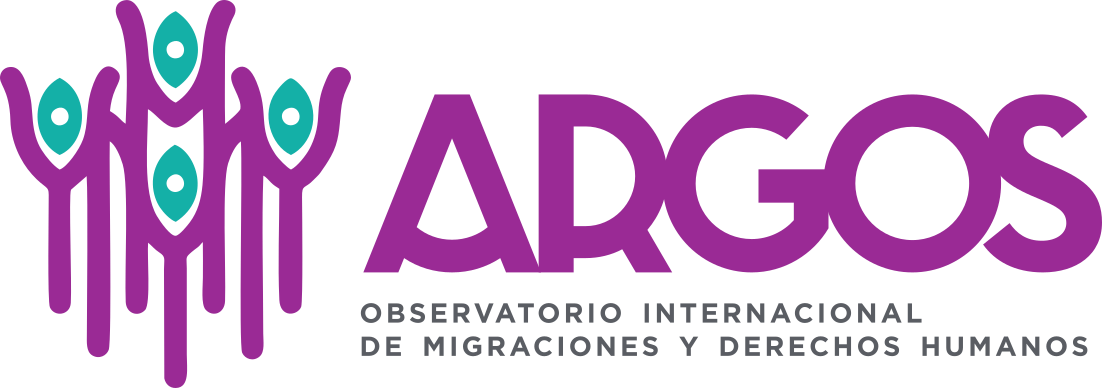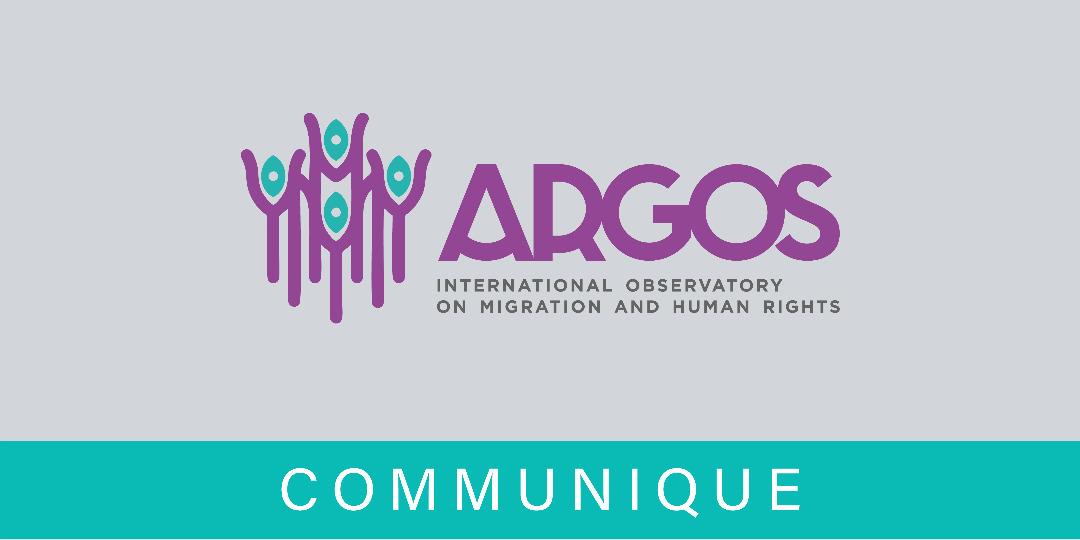14 May 2021
ARGOS-International Observatory on Migration and Human Rights expresses its concern over the multiple allegations of human rights violations committed by the Colombian security forces in the context of the demonstrations and protests that have been taking place in that country since April 28th, initially against the Tax Reform promoted by the government of Iván Duque, but which later revealed deeper social demands of the Colombian people.
Since the beginning of the day of protests, reports have been circulating of people being extrajudicially killed and detained without due process, as well as videos and testimonies of victims of acts of torture, threats, harassment and excessive use of force by the National Police and the Armed Forces to repress the legitimate mobilisations of the citizens.
We are also dismayed by the armed attacks by the security forces and unidentified persons against representatives of the United Nations Human Rights and the Pre-hospital Medical Mission in Colombia, in a clear violation of international humanitarian law and human rights.
As a result of these actions, the non-governmental organisation Temblores reported that between 28 April and 10 May 2021 at least 1,956 cases of violence committed by members of the State security forces occurred at the national level, including 313 victims of physical violence, 40 cases of homicidal violence committed by members of the security forces, 1,003 arbitrary detentions of demonstrators, 418 violent interventions in the framework of protests, 28 victims of ocular aggressions, 129 cases of gunshots and 12 victims of sexual violence.
The events unfolding in Colombia cannot be understood in isolation from the armed conflict that has been raging in that country for decades, which has resulted in a toll of over 8,000 deaths; nor from the violence and structural neglect that has characterised the Colombian State in relation to vulnerable populations, such as black communities, indigenous peoples, women, children and young people.
In this sense, we are extremely concerned that this new escalation of the conflict will generate a greater number of displaced people in that country, as well as a situation of displaced people outside Colombian territory, with repercussions in neighbouring countries.
Of the total number of murders recorded so far, 35 have taken place in the city of Cali, department of Valle del Cauca (located in the Pacific region), home to the second largest Afro-descendant population in South America, according to the non-governmental organisation Consultoría para los Derechos Humanos y el Desplazamiento (CODHES).
This region, which includes the departments of Chocó, Valle del Cauca, Cauca and Nariño, concentrated the highest number of forcibly displaced persons at the national level in 2020, with a total of 21,932. Last year, 32 events of multiple and massive forced displacement were registered in Nariño alone, the highest number at the national level, leaving a total of 11,470 victims.
The humanitarian situation of rural populations in Colombia is critical. In 2020, a total of 32,217 people were forcibly displaced in 106 events of multiple and massive displacement at the national level. Almost 80 percent of these events were related to the presence of armed groups (35.13%), threats and intimidation (23.3%) and confrontations (20.07%).
Of this figure, more than 50 percent belonged to different ethnic groups, with 9,150 victims among the Afro-descendant population and 7,049 among the indigenous population. The pattern continued in terms of the profile of the people killed, with more than 30 percent belonging to different ethnic groups: 48 indigenous people and 20 Afro-descendants.
As pointed out by various researchers, social movements and human rights organisations in Colombia, the violence currently exercised by the Colombian state has a disproportionate impact on Afro-descendant communities and indigenous peoples. A large number of the most aggressive cases of state violence recorded in recent years have occurred in territories inhabited by these populations, who have been subjected to a historical socio-economic exclusion that has been exacerbated in the context of the COVID-19 pandemic.
Recent information from the Ombudsman’s Office also indicates that during 2021, a total of 27,435 people were victims of forced displacement due to the increase in violence in several regions of the country, representing an increase of 177 percent compared to the same compared to the same period in 2020.
In view of this situation:
- We urge the Colombian government to stop the excessive and arbitrary use of violence against the civilian population, the stigmatisation and criminalisation of social protest.
- We urge the government authorities to engage in a broad dialogue that includes all sectors of the national political life, and to recognise the social demands emanating from civil society.
- We call on the Colombian State to comply with the full implementation of the Peace Accord and to guarantee the right to life of social leaders, defenders and
social leaders, human rights defenders and the Colombian civilian population in general. - We urge the organs and institutions of the Colombian State to implement programmes of special attention to the populations in a situation of forced displacement due to the internal armed conflict in order to attend to their needs in the midst of the critical situation that the country is currently facing.

